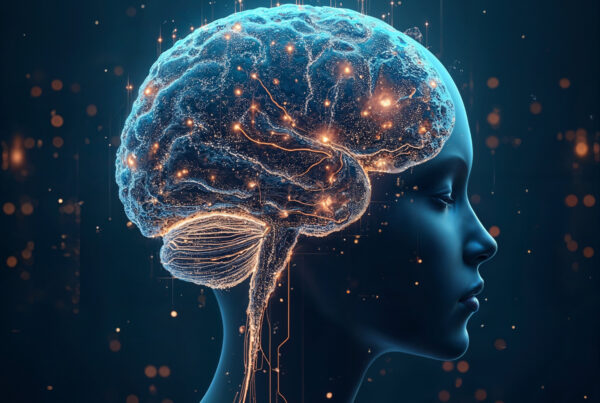In the open-label clinical study Efficacy, safety, and durability of repeated ketamine infusions for comorbid posttraumatic stress disorder and treatment-resistant depression by Albott et al. (2018), researchers examined the therapeutic impact of intravenous ketamine in patients grappling with both posttraumatic stress disorder (PTSD) and treatment-resistant depression (TRD). The results were compelling: repeated ketamine infusions led to rapid, substantial, and sustained symptom reduction in both conditions.
PTSD and TRD represent some of the most difficult psychiatric conditions to treat, and their co-occurrence amplifies functional impairment, complicates recovery, and increases the risk of suicide. Traditional pharmacologic strategies often fall short for such patients. This study offers a glimpse into how ketamine, long used as an anesthetic, could serve as a novel psychiatric intervention for these dual burdens.
Study Overview and Patient Cohort
Between May 2015 and June 2016, 15 individuals diagnosed with DSM-5-defined PTSD and DSM-IV-defined MDD were enrolled. Each participant received six intravenous infusions of ketamine (0.5 mg/kg) on a Monday-Wednesday-Friday schedule over a 12-day period.
Patients were evaluated at multiple time points:
- Before and 24 hours after each infusion
- Weekly for 8 weeks post-treatment
This design allowed researchers to assess both immediate and durable effects of ketamine on psychiatric symptoms.
Rapid Improvements in Both PTSD and Depression
 The results were dramatic and statistically robust:
The results were dramatic and statistically robust:
- PTSD symptoms (measured by the PTSD Checklist for DSM-5) decreased by an average of 33.3 points, with a large effect size (d’² = 2.17).
- Depressive symptoms (assessed via the Montgomery–Åsberg Depression Rating Scale) fell by 26.6 points, an even stronger effect (d’² = 4.64).
Notably:
- 80% of patients achieved remission from PTSD.
- 93.3% of patients responded to ketamine for depression.
These numbers exceed the response rates typically seen with standard antidepressant or anti-PTSD medications, highlighting ketamine’s potential as a breakthrough treatment.
Duration of Response and Relapse Window
Despite the robust initial responses, symptom remission was not permanent:
- For those with PTSD remission, the median time to relapse was 41 days.
- For patients whose depression symptoms responded, relapse occurred after a median of 20 days.
This underscores ketamine’s transient effect, necessitating further research into maintenance strategies or adjunctive therapies to prolong benefits.
Safety and Side Effect Profile
The ketamine treatments were generally well-tolerated. Some participants reported transient dissociative symptoms during infusion sessions. Importantly, no patients experienced a worsening of PTSD symptoms, a key concern in trauma-focused pharmacotherapy.
These safety findings support the feasibility of administering ketamine in outpatient or controlled environments with appropriate medical oversight.
Clinical Relevance and Implications
The study’s findings suggest ketamine could offer dual benefit in treating both trauma-related and depressive symptoms:
- Fast symptom relief is crucial for acutely distressed individuals, especially veterans and first responders.
- Repetition of dosing appears essential for sustaining remission.
- Personalized schedules or combination therapies may extend the duration of effect.
For clinicians, these results offer hope and a possible new tool in managing otherwise refractory psychiatric cases.
Limitations and Future Directions
As with any open-label study, caution is warranted:
- Small sample size (N=15) limits generalizability.
- Lack of placebo control prevents ruling out expectancy effects.
- Short follow-up may not capture full relapse dynamics or long-term safety.
Larger randomized controlled trials (RCTs) are necessary to establish optimal protocols, dose frequency, and integration with psychotherapy or other pharmacologic treatments.
Conclusion
Albott et al.’s 2018 investigation provides early but strong evidence that repeated intravenous ketamine can produce rapid, meaningful, and sustained symptom relief for individuals with co-occurring PTSD and treatment-resistant depression. With favorable tolerability and high response rates, ketamine emerges as a promising adjunct or alternative when conventional treatments fall short.
References
- Albott CS, Lim KO, Forbes MK, et al. Efficacy, safety, and durability of repeated ketamine infusions for comorbid posttraumatic stress disorder and treatment-resistant depression. J Clin Psychiatry. 2018;79(3). https://doi.org/10.4088/JCP.17m11761
- Feder A, Parides MK, Murrough JW, et al. Efficacy of ketamine in reducing PTSD symptoms: a randomized controlled trial. Am J Psychiatry. 2014;171(6):618–626. https://doi.org/10.1176/appi.ajp.2014.13040572
- Wilkinson ST, Ballard ED, Bloch MH, et al. The effect of a single dose of intravenous ketamine on suicidal ideation: a systematic review and individual participant data meta-analysis. Am J Psychiatry. 2018;175(2):150–158. https://doi.org/10.1176/appi.ajp.2017.17040472
- Zarate CA Jr, Singh JB, Carlson PJ, et al. A randomized trial of an NMDA antagonist in treatment-resistant major depression. Arch Gen Psychiatry. 2006;63(8):856–864. https://doi.org/10.1001/archpsyc.63.8.856
- Duman RS, Aghajanian GK. Synaptic dysfunction in depression: potential therapeutic targets. Science. 2012;338(6103):68–72. https://doi.org/10.1126/science.1222939




